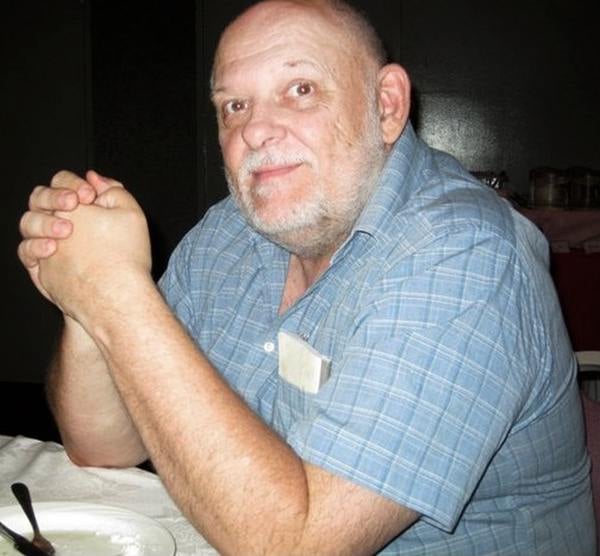DUANE VORHEES is an American poet in Thailand. He is the author of THE MANY LOVES OF DUANE VORHEES, HEAVEN, GIFT: GOD RUNS THROUGH ALL THESE ROOMS, MEMORIES ARE LINKED LIKE OASES, A CONSIDERABLE SHARE OF FELICITY, and THE WOMB AND THE BRAIN. Born in Farmersville, Ohio, USA, he graduated from Bowling Green State University with a doctorate in American Culture Studies. He has taught at Seoul National University, Korea University, and the Asian Division of the University of Maryland University College (now the University of Maryland Global Campus). He has traveled extensively on five continents.
IRMA KURTI: Can you tell us something about yourself?
DUANE VORHEES: I’m 75, so it would take a long time to answer your question fully. Basically, I grew up in working-class family in a rural community. I was mostly raised by my grandparents, who both died when I was in college. I spent several years doing a variety of jobs, mostly menial, and spent a few years in Canada. But in my 30s I “temporarily visited” Korea, and it would remain my home for about a quarter century, in part as a university professor first at Seoul National University and Korea University and then at the University of Maryland, which has worldwide contracts to offer classes to American military personnel and others. I spent my last three professional years in Japan, near Hiroshima. Now I live in Thailand with my wife, son, and in-laws. But for the first time I have the time and energy to spend on writing.
IRMA KURTI: Do you have strong ties to your country of origin?
DUANE VORHEES: Culturally I’ve always been an American and haven’t “gone native” despite spending most of my life outside the US. But I rarely visit. However, I have two daughters and a grandson living there, and many friends. And I continue to vote and pay attention to American developments.
IRMA KURTI: When and how did you start writing?
DUANE VORHEES: I can’t remember learning how to read. Certainly that was a skill I had acquired before I started to school. And I was certainly a bookworm. Aside from school assignments, I started to “write” while in elementary school, creating stories for imaginary comic books, and at some point I assumed I would be an author. But I didn’t start to write poetry seriously until I was a freshman in college and only fitfully wrote for many decades to come. I didn’t write regularly (except for non-creative purposes) until after I retired, and have become rather prolific since then.
IRMA KURTI: Do you remember what was your first poem or story about?
DUANE VORHEES: When I was in the 6th grade the high school newspaper recruited Christmas poems from the elementary school. Two of my poems were used, but I don’t have any specific memory about the, they were generic.
IRMA KURTI: You have published several books of poetry. What book do you feel connected to the most?
DUANE VORHEES: Since 2019 I have published 5 books in the US and 2 in India. The first two were mainly retrospectives, since they consisted of work that had survived from the 1960s and onwards, with very little in the way of newish poetry. Subsequent books have been contemporaneous, with a handful of newly-corrected old poems.
IRMA KURTI: Why do you write?
DUANE VORHEES: This is the most difficult question. Samuel Johnson insisted that no one but a blockhead would write except for money. But I think that is a shortsighted view. Lots of writers, painters, sculptors, and other artists, write for attention and especially because they feel that they must. Creative self-expression can be a powerful force in human motivation, whether or not it is profitable. Although it is true that I would enjoy financial success, that has never been my primary motivation.
IRMA KURTI: You have taught at Seoul National University, Korea University, and the Asian Division of Maryland University College. Can you tell something more about this experience?
DUANE VORHEES: SNU is Korea’s premier university, and KU is #3. The students, by definition, are the very best high schoolers academically. They are all proficient in English. (I also worked in other Korean colleges, with “average” students, and at hagwons, private academies where students and adults went to improve their English skills, where communication is much more basic.) The students in these institutions are bright and hard workers who have earned a promising future as members of the social elite – corporate executives, politicians, academics, and so forth. For them, the four years at university are a kind of oasis between the hard work they put in as adolescents and the hard work they will have to engage in post-university When I was there, back in the late 1980s and early 1990s, the women realized it was their only chance to shine, since they would probably be relegated to wife/mother roles and secondary professional positions after graduation, while the men knew that their futures were pretty much assured and they would spend their college years having as much fun as possible. I’m sure that this observation is probably not so relevant today. At both elite Korean schools I was officially part of the faculty and had equal status with the regular faculty, but I grew disillusioned with my actual position – I was not eligible for sabbaticals or other academic perks, I taught more classes for the same salary, I received a smaller bonus, and had no opportunity for promotion – so I joined the University of Maryland program, though it paid less but its equality of treatment was uniform. (And, again, I’m sure that the academic situation in Korea has changed since I was an active part of it.) The UMUC program was designed to provide a university education to American military members, their families, and others – for many years I had large numbers of Korean students in my classes, who provided a great cross-cultural environment. Most of my American students had poor academic skills, had not done well in high school, were poor economically, and had joined the military at least in part in order to pursue higher-education opportunities. Far more than in the elite Korean universities, “teaching” was the prime purpose. The work was demanding, with long commutes (I often spent more time traveling to and from class than I did in the classroom), schedules were short (8-week academic terms that contained the same number of class hours that a 16-week semester would have), and without labs, laboratories, libraries, or the other scholarly apparatus that we associate with universities. But it was an invigorating experience, especially since, as an American Studies graduate, I was able to teach classes in several disciplines, and even to create my own courses at least once a year, and every two months I had new students and different courses at different locations, so I never felt I was in a rut.
IRMA KURTI: What are some challenges that you have faced in your literary path?
DUANE VORHEES: The act of creating has always been a challenge, but the fate of the final product is another. Is anyone enjoying my efforts? Is anyone even aware of them?
IRMA KURTI: You have traveled a lot. What does travel mean to you?
DUANE VORHEES: Until my 20s I traveled in steerage via the books I read. But then I lived in Montreal for a few years and spent time in most of the eastern half of the country, as far north as Moosonee and as far west as Brandon, and was able to visit Copenhagen and Rio de Janeiro. In the US I lived mostly in Ohio but also in South Carolina, and less time in New Jersey, Florida, and Pennsylvania, but spent some time in most of the states east of the Mississippi, the Southwest, and the West Coast, plus Hawaii, and Mexico. After I moved to Korea I made many visits to east and southeast Asia, and the Naples region in Italy. Last year I spent a few days in Morocco, my first time in Africa or an Arab country (not counting airports, of course). It is very hard to travel and not gain an appreciation for how much human character is the same everywhere and also how many ways (cultural, environmental, economic, linguistic, social) there are to be human.
IRMA KURTI: Has poetry the power to unite and inspire?
DUANE VORHEES: Any human activity has the power of uniting and inspiring but also of dividing us and arousing negative emotions and activities. Poetry occupies the same ambiguity. We are a species that persists in inconsistent, wayward behavior.
IRMA KURTI is an Albanian poet, writer, lyricist, journalist, and translator and has been writing since she was a child. She is a naturalized Italian and lives in Bergamo, Italy. All her books are dedicated to the memory of her beloved parents, Hasan Kurti and Sherife Mezini, who have supported and encouraged every step of her literary path.
Kurti has won numerous literary prizes and awards in Albania, Italy, Switzerland, USA, Philippines, Lebanon and China. She was awarded the Universum Donna International Prize IX Edition 2013 for Literature and received a lifetime nomination as an Ambassador of Peace by the University of Peace, Italian Switzerland.
In 2020, she became the honorary president of WikiPoesia, the encyclopedia of poetry. In 2023 she was awarded a Career Award from the Universum Academy Switzerland. She also won the prestigious 2023 Naji Naaman’s literary prize for complete work.
Irma Kurti is a member of the jury for several literary competitions in Italy. She is also a translator for the Ithaca Foundation in Spain.
Irma Kurti has published more than 100 works, including books of poetry, fiction and translations. She is one of the most translated and published Albanian poets. Her books have been translated and published in 21 countries.


